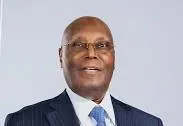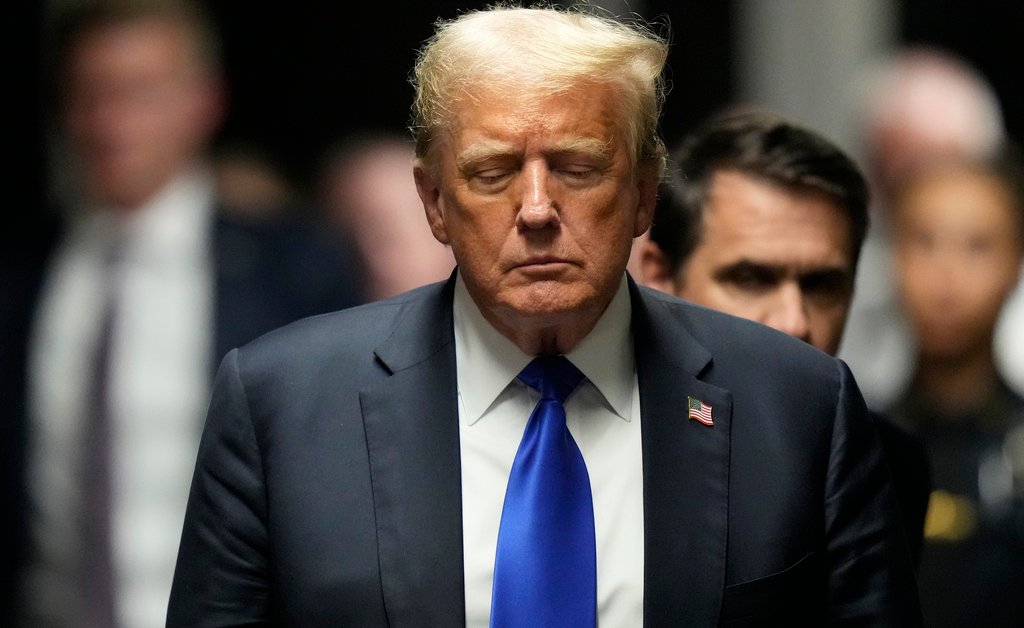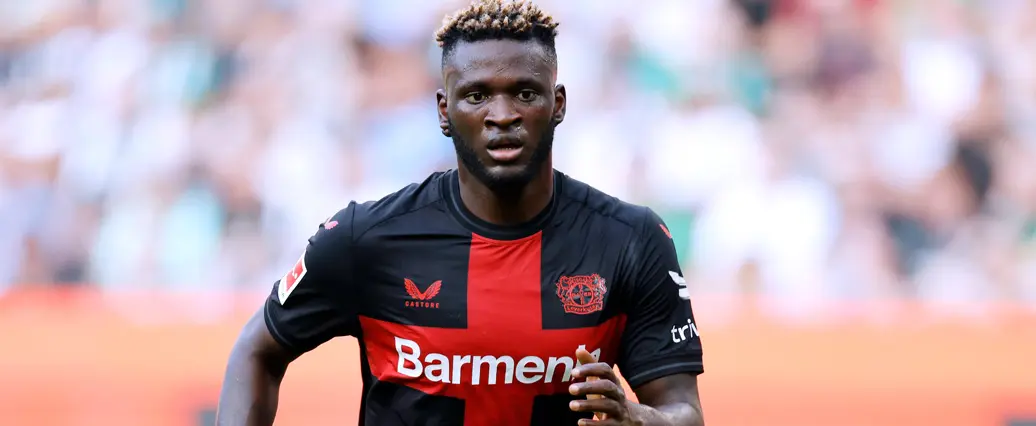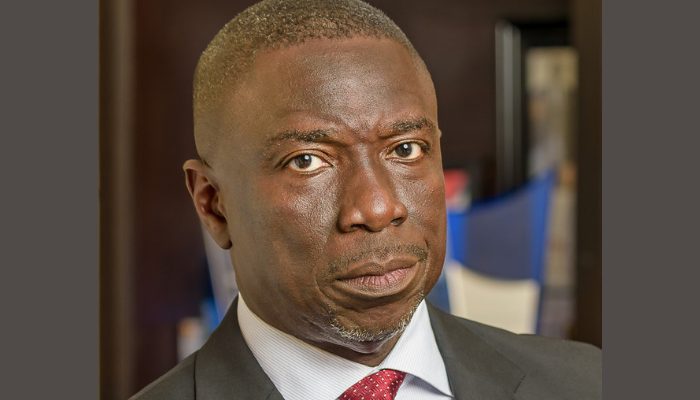©2022 DopeReporters. All Right Reserved. Designed and Developed by multiplatforms
Tag:
decide
Amid increasing calls for the removal of Prof. Mahmood Yakubu as Chairman of the Independent National Electoral Commission (INEC), former Abia State governor Dr. Okezie Ikpeazu has clarified that only President Bola Tinubu and the National Council of State (NCS) have the authority to dismiss the electoral chief.
The push for Yakubu’s removal, led by former President Olusegun Obasanjo and other discontented Nigerians, follows dissatisfaction with recent election outcomes in Edo and Ondo States.
Speaking at the Chinua Achebe Leadership Forum at Yale University, Obasanjo, in a speech titled “Leadership Failure and State Capture in Nigeria,” called for the dismissal of INEC officials nationwide.
In response, Ikpeazu highlighted the legal processes governing the INEC Chairman’s tenure.
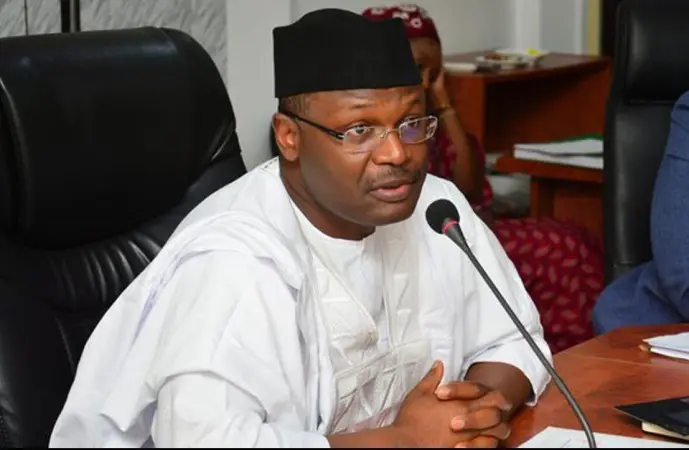
“The power to remove the INEC Chairman lies solely with President Tinubu and the National Council of State. It cannot be done arbitrarily,” Ikpeazu stated during a book launch event in Abuja.
The book, Contemporary Legal Cooperation: China and Africa – A Comparative Survey of Legal Systems, authored by journalist John Chucks Azu, was presented at the event, which also featured discussions on the theme, “New Horizons in Rule of Law, Judicial Efficiency, and Dispute Resolution: Lessons from China and Nigeria.”
Ikpeazu, who recently lost his senatorial bid to Senator Enyinnaya Abaribe of the All Progressives Grand Alliance (APGA), has previously criticized INEC for declaring Abaribe the winner.
Speaking on the sidelines of the event, Ikpeazu called on INEC to be more transparent and impartial in the conduct of elections. Referring to the Ondo election, he said, “Unfortunately, my party lost, but that election has come and gone. I will advise INEC to be more transparent and impartial in the conduct of elections. When people are not happy with your process, you don’t talk about it but open up the space to let people come and see what you are doing. Sometimes, you meet them upfront.”
On the call for the sack of the INEC Chairman, Ikpeazu stated, “It is not my call to make about a new leadership of INEC. That is the call of Mr President and the Council of State, and I think they will take that decision when the time comes.”
NEW YORK — A judge confirmed Friday that President-elect Donald Trump won’t be sentenced this month in his hush money case, instead setting a schedule for prosecutors and his lawyers to expand on their ideas about what to do next.
Amid a flurry of filings in the case since Trump’s election win this month, it had already become clear that the Nov. 26 sentencing date wouldn’t hold. Judge Juan M. Merchan’s order Friday formalized that without setting a new one.
He called for more filing from both sides over the next 2 1/2 weeks about how to proceed in light of Trump’s impending return to the White House.
Trump’s lawyers want the case to be dismissed outright, and immediately. They have said that it otherwise will interfere with his presidential transition and duties.
Prosecutors have indicated that they’re open to putting the case on hold, perhaps as long as he’s in office, but they don’t want it to be scrapped altogether. Manhattan District Attorney Alvin Bragg, a Democrat, has said the solution needs to balance the obligations of the presidency with “the sanctity of the jury verdict.”
Bragg’s office declined to comment on Friday’s ruling. Trump spokesperson and incoming White House communications director Steven Cheung hailed it as “a decisive win” for Trump.
Trump, a Republican, was convicted in May of falsifying his business’ records to disguise the true nature of a chain of payments that provided $130,000 to porn actor Stormy Daniels. She received it, through Trump’s then-lawyer, in the waning days of the 2016 presidential campaign.
The payout was meant to keep her quiet about a sexual encounter she says she had with the married Trump a decade earlier. He denies her claim and says he did nothing wrong.
As Americans head to the polls to elect their next president, the world is reminded of the far-reaching implications of this election outcome. From the Russo-Ukraine war to conflicts in the Middle East and the geopolitics of Africa and Asia, the election outcome will shape events far beyond the shores of the US.
With most polls suggesting razor-thin margins between Trump and Harris, this election is turning out to be one of the most closely contested elections in American history. Undecided or hesitant voters have become critical in breaking the tie between closely matched support bases on both sides come November 5, 2024. The race to the White House is driven by an intense war of words, where rhetorical framing is the key weapon being deployed by both sides to shape opinions and influence voting decisions. Here are my thoughts on how Trump and Harris are employing rhetorical framing to tip the scale in this neck-to-neck race.
Both candidates assigned prominence to issues that they believe will resonate with their audiences. Kamala Harris emphasised the significance of economic support for the middle class and working families, framing her vision for reform as an “opportunity economy” that serves ordinary Americans. She also focused on themes of unity and inclusivity, pledging “to be a president for all Americans,” and stating that regardless of differences, Americans “all have the same dreams and aspirations.” Additionally, Harris’ campaign rhetoric always essentialises her commitment to protecting reproductive rights, and the need to “chart a course for the future and not go backward to the past.”
On the other hand, Trump prioritised illegal immigration, crime, and economic decline rhetorically framing the situation as one of severe crisis. He often employed emotive rhetoric to project fear of “criminal immigrants” stressing that “millions of people pouring into our country from prisons and jails, from mental institutions and insane asylums” were taking jobs meant for Americans. By framing immigration and crime as national crises, Trump aims to rile up his base and discontented voters against the political establishment.
Both Trump and Harris rely heavily on identity framing to connect with voters. Kamala Harris often frames herself as an advocate for middle-class and working families. Referencing her childhood during her live debate with Trump, she said, “I was raised as a middle-class kid. And I am actually the only person on this stage who has a plan that is about lifting the middle class and working people of America.”
Throughout her campaign, she has consistently amplified her experience as a prosecutor and her capacity to unify America in contrast to Trump’s leadership. She said: “Americans see in each other a neighbour…they don’t want a leader who is constantly trying to have Americans point their fingers at each other.”
On the other hand, Donald Trump positions himself as a strong leader fighting against the political establishment to protect American borders and restore its greatness on the global stage. During his debate against Harris, he touted his strong relationship with world leaders to underscore his influence on the global stage. Trump boasted, “He (Hungarian Prime Minister, Viktor Orban) said the most respected, most feared person is Donald Trump. We had no problems when Trump was president… China was afraid of him. North Korea was afraid of him.”Trump often refers to his political opponents as ‘weak.’ By framing himself as a strong leader, Trump seeks to amplify the contrast between his image and the characterisation of weak leadership he ascribed to Harris on fundamental issues like immigration, crime, and the economy.
Trump and Harris regularly employ oppositional framing to diminish the credibility of the opponent. Harris frames Trump as a failed, divisive, and self-serving leader unfit to lead America. She stressed that ”Trump will not talk about people’s needs, dreams, and desires” and that America deserves a leader who “puts them first” positioning herself as such a leader. Harris also consistently framed Trump as dangerous to American democracy, referencing the January 6th Capitol riots as Trump’s attempt to upend the will of the American people. Furthermore, she repeatedly referred to Trump as a liar, warning their debate audience from the start of the debate to expect “a bunch of lies” from Trump, in a pre-emptive tactic to undermine his credibility. In the last few weeks leading to the election, Harris’ campaign has ramped up rhetoric that frames Trump as mentally unstable.
Trump’s framing of Harris is equally pejorative, often using rhetoric that frames her as weak and incompetent on the economy, crime, immigration, and foreign policy. He has also characterised Harris as unintelligent, mentally unfit, a radical leftist, and a Marxist, who would confiscate guns, stop fracking, and allow “transgender operations on illegal aliens.” By framing Harris this way, Trump reinforces the portrayal of Harris as a radical leftist who has lost touch with American values.
Both Trump and Harris often employ a range of emotional, logical, and credibility-based appeals. Harris uses vivid imagery to emphasise concerns about women impacted by restrictions on reproductive rights. She rhetorically painted an image of “pregnant women…bleeding out in a car in the parking lot” to connect with the emotions and struggles of American women and underscore her commitment to their plights. She also uses fear rhetoric to describe a potential Trump presidency for the second time.
Trump, on the other hand, employs fear and a sense of urgency to drive emotional appeal. He frequently uses hyperbole and repetition to amplify issues and frame them as major crises. For example, he regularly claims that “millions of criminals and terrorists are pouring into America and destroying the country.”By invoking fear and a sense of urgency, he seeks to play on people’s anxieties about national security.
In terms of logical appeal, Harris’ rhetoric regularly seeks to drive persuasion by presenting logical arguments. She cited Goldman Sachs’ endorsement of her economic plan to suggest that her policies are supported by independent expert evaluation. She also employed logical appeal to discredit Trump’s economic plan, arguing that reputable entities like Goldman Sachs, Wharton School, and 16 Nobel Laureates all declared that Trump’s plan would worsen the US economy.
Trump, in contrast, appeals to logic whenever he declares that he “created one of the greatest economies in the history of America” and that he would do it even better again if given a second chance.
Applying credibility-based appeal, Harris repeatedly emphasised her credentials as a prosecutor to demonstrate her capacity to fight crime and maintain the rule of law. Similarly, Trump appealed to credibility by consistently highlighting his achievements as a strong leader on the global stage, touting his ability to negotiate and stop what he alleged to be a rip-off from China, Europe, and NATO.
Overall, this US election looks set to be decided by swing or undecided voters, the majority of whom will not conduct granular scrutiny of each candidate’s policies. Instead, they will respond to key soundbites and rhetorical framing that collectively shape their view of the candidates and consequently, their voting decision. While some argue that campaign rhetoric has limited influence on core voter bases, the rhetorical framing of arguments and counter-arguments that resonate with swing voters will ultimately tilt the scales towards Democrats or Republicans.
- Dr Ogbe is a strategic communications consultant and an academic whose research focuses on rhetorical leadership
Bayer Leverkusen sporting director, Simon Rofles, has revealed the club will take a decision on whether to include Victor Boniface in the squad for the game against Brest.
Boniface was involved in a car accident on Sunday.
The Nigeria international sustained minor injury from the accident.
The 23-year-old missed training on Monday as the Bundesliga champions began preparations for the UEFA Champions League away clash against Brest.
“He’s better. A situation like this isn’t easy and there’s no doubt that you have to digest it a bit. Of course, we’re all very happy that nothing really happened to him,” Rofles told Bild.
“We’ll talk to him again now and then see what the situation is, whether he’ll go or not. That’s still open at the moment.”
The Edo State chapter of the Labour Party, LP, has urged eligible voters to ignore the derogatory comments made by some political parties and individuals during the campaign for the Saturday gubernatorial election.
According to report over 2.2 million people with permanent voter cards will be electing their new governor today (Saturday).
There are three major political parties and candidates in the race. The All Progressives Congress is fielding Senator Monday Okpebholo, the Peoples Democratic Party has Asue Ighodalo while Olumude Akpata is the flagbearer of the Labour Party.
There have been concerns over recent comments by the incumbent Governor, Goodwin Obaseki who wants his anointed candidate, Asue Ighodalo to succeed him.
Obaseki had on two occasions stated that the Edo gubernatorial election would be a do or die affair.
On September 13, 2024, the Governor said this while speaking at the PDP grand finale campaign held in Oredo Local Government area of the state said, “This election is a do or die. Do you want insecurity? Do you want people that didn’t go to school to lead us? Next Saturday is the election, you will vote for PDP and our next governor is Asue Ighodalo”.
Despite the backlash from concerned Nigerians, the governor, who appeared on Channels Television’s Politics Today on Thursday insisted that “it’s a do-or-die affair because if they do, we die”.
One of the eligible voters in the state, Mr Henry Osariemen told DAILY POST on Friday that violence may mar the election.
According to him, “Many people are not ready to go and vote tomorrow. This is because politicians have already declared war and nobody wants the war to consume him.
“Aside from what they are planning secretly, you and I don’t know, for someone, a sitting governor to openly declare that the election is going to be do or die, that’s not a joke.
“Are we going to be surprised if innocent people are killed? No, he already told you that it’s a do or die affair and that is what is going to happen because in Edo here, we have different thugs waiting to be mobilized.
“They have even started. There were about five assassins sent to kill Hon Prince Okojie in his own house this morning (Friday) only for the security operatives in the area, the man would have been dead now.
“If they can do that to a serving federal lawmaker, who are we? People will be killed and nobody will ask the governor any questions”.
However, in a chat with DAILY POST, the Edo State Chairman of the Labour Party, Kelly Ogbaloi, urged the electorates to ignore Obaseki’s comment, come out en-mass and vote for their preferred candidates, describing the threat as a “worthless propaganda”.
He said, “it is a worthless propaganda put out there by these ones to call for a ‘do or die’. We advise and encourage our electorates to dismiss that and come out en-mass and vote.
“No one should listen to such a statement of charade and encounter self disenfranchisement.
“In this contest, the Labour Party has a broad perspective and the party is billed to win the election.”
The candidate of the People’s Democratic Party, PDP, in the September 21, governorship election in Edo State, Asue Ighodalo, has said the people of the state will decide their next governor.
Ighodalo made this statement on Channels Television’s Politics Today programme on Monday.
The PDP candidate said the choice of who succeeds Godwin Obaseki is not for PDP heavyweight like Nyesom Wike or any other person to make but the people of the state.
Recall that Wike had last Friday said he won’t support Ighodalo who is the anointed candidate of the outgoing governor.
“I told them (Obaseki and Ighodalo) when they came to me that I am not going to support you, neither am I going to support anybody. The one I supported, it never helped anything. Rather I was insulted.
“I supported him (Obaseki) the last time, what happened? I became a stupid man,” Wike said.
Responding, Ighodalo said that it was incorrect that Governor Wike said he was not going to support us, adding that events may have overtaken his decision at that point and he is free to change his mind.
“I believe as a gentleman that he would adhere to the word he gave me but if he has changed his mind, so be it.
“When he and I spoke, we spoke on issues around governance, around Nigeria issues, around how we can create a better country, we spoke about Edo State, and at the end of the day we ended the conversations at a point where he said he will mind his business and Edo State is not part of his business.
“But again, if he’s decided to change his mind, that’s fine but the decision as to who becomes the next governor of Edo State is the decision of the Edo State people; it’s not the decision of anybody else, whether you’ve been a governor or you’re a minister.
“It’s only Edo State citizens and people that reside in Edo State who carry PVCs in Edo State that take that decision with the support of God Almighty and that’s the way I see it. I fear no man, I only fear God,” Ighodalo said.
The Peter Obi Support Network (POSN) has re f lected on the departure of top supporters on their principal and former presi dential candidate of La bour Party (LP) Peter Obi, and noted that citizens who desire a new and bet ter Nigeria should remain steadfast and deepen their engagements with others ti realise the new Nigeria they crave. Co-convener, Peter Obi Support Network, POSN, Comrade Tochukwu Ezeoke, in a statement is sued by the group to state its position on the recent departures of key sup porters such as Dr. Doyin Okupe, Engr. Isaac Bal ami, and Barr.
Kenneth Okonkwo, expressed re spect for their commitment to a great Nigeria, advo cating for a grassroots po litical party and a decisive leader with integrit


